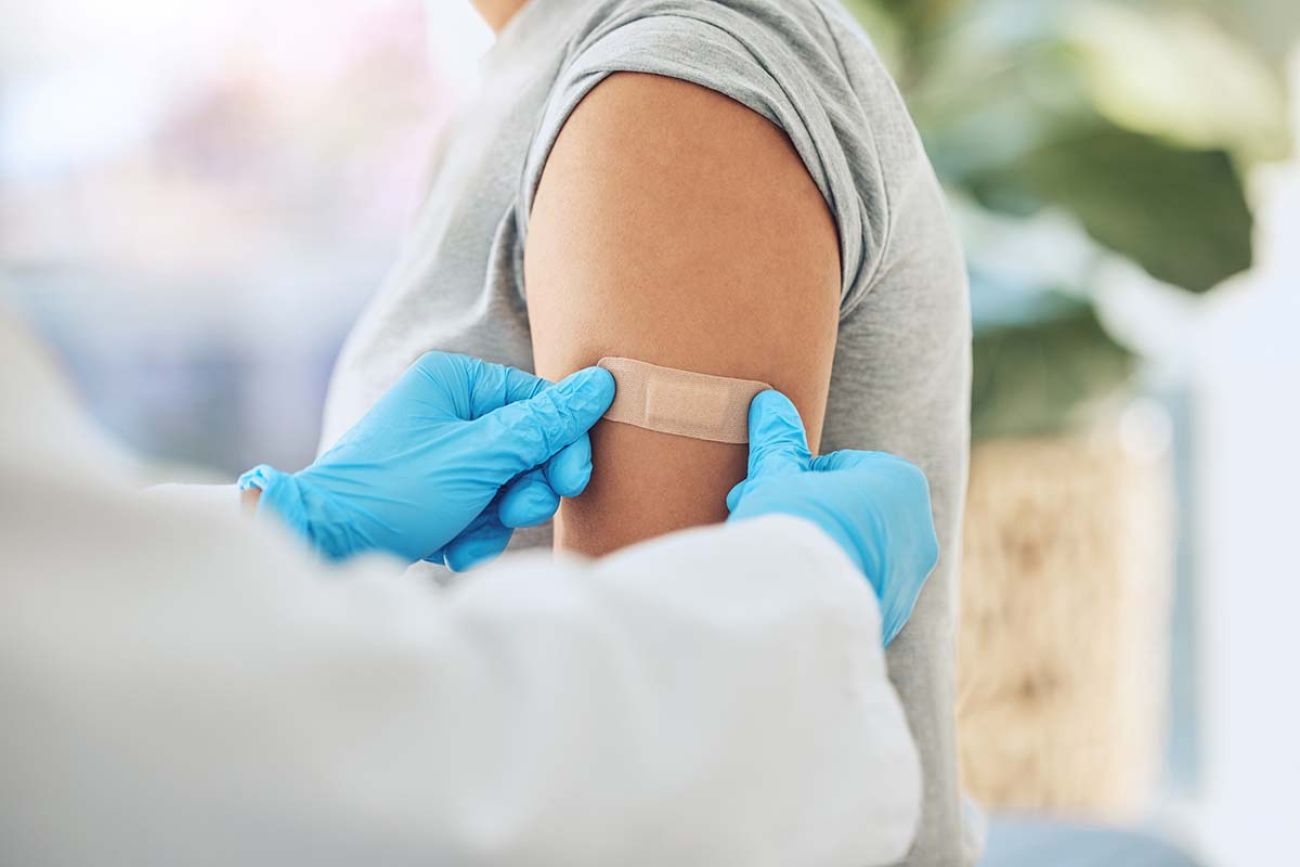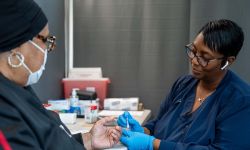Free COVID shots program ends for uninsured. In Michigan, what now?

- The federal Bridge Access Program provided free COVID-19 vaccines to uninsured or underinsured adults
- The program ended in late August, but Michigan plans to provide a limited number of free adult vaccines
- COVID cases are on the rise in the state and elsewhere in the U.S.
A federal program that has provided free vaccines to uninsured and underinsured Americans has come to an end, but it appears that at least some doses are heading to Michigan this fall.
The Michigan Department of Health and Human Services has requested 12,000 doses of the updated vaccine, Ryan Malosh, director of the department’s immunizations division, told reporters in a call discussing back-to-school and other vaccines.
That was the maximum number the state could request, and the updated COVID shots arrive sometime in this month. Beyond that, details still are being worked out, Lynn Sutfin, a state health department spokesperson, told Bridge Michigan.
Related:
- The latest COVID-19 vaccine is rolling out. Here’s what you need to know
- COVID cases rising, but more slowly, as Labor Day fun, get-togethers loom
- In Michigan, cases of whooping cough — pertussis — continue to climb
- COVID is up again in Michigan. Good luck finding more info (or free tests)
When the vaccines arrive, health officials will distribute them through the Michigan Adult Vaccine Program, which works with local health departments, Federally Qualified Health Centers, Migrant Health Centers, and Tribal Health Centers, she said.
Consumers who can’t afford or aren’t insured for the vaccines can contact their local health department for more information.
For children, the federal Vaccines for Children program will provide shots to those who are uninsured, underinsured, or American Indian or Alaska Native.
In late August, the U.S. Food and Drug Administration greenlit updated COVID shots to protect against the Omicron variant KP.2 strain. The decision makes available Comirnaty and Spikevax for individuals 12 years of age and older, as well as vaccines formulated for children 6 months through 11 years old.
Cases on the rise
Most health insurers, including Medicaid and Medicare, cover COVID shots at no cost. And the state’s and nation’s rates of uninsured have dropped to historic lows. Meanwhile, the U.S. Department of Health & Human Services will make free tests available again by mail at the end of September.
Still, more than 450,000 Michiganders are uninsured, as COVID cases remain high and the nation faces another respiratory season ahead. Public health officials and doctors have repeatedly said vaccines are the best way to curb COVID’s spread.
Costs for previous COVID vaccines have topped $100 without insurance.
Until now, COVID vaccines were made available to Americans without insurance through a $1.1 billion Bridge Access Program launched in April, 2023. It distributed the vaccines through a network of local pharmacies, local health centers and public health departments.
The program ended in late August, but the Centers for Disease Control and Prevention will spend $62 million to make the new vaccines available to those without insurance, agency director Mandy Cohen said.
Whether 12,000 doses for Michigan’s uninsured will be enough is unclear.
Demand in the COVID vaccine has waned dramatically. Just two counties in Michigan — Leelanau and Washtenaw — recorded “high” coverage for the previous vaccine, and even then, just about 1 in 4 residents was vaccinated, according to the most recent state data.
But while COVID now is being treated much like the flu, it still poses a more deadly threat to the elderly and immunocompromised. Cohen said COVID continues to become more like flu, but — when considering deaths and hospitalizations — COVID continues to be “more dangerous.”
Moreover, about 1 in 10 adults say they continue to suffer from long COVID.
It may be several weeks before health departments begin promoting COVID vaccines.
Fow now, many are focused on required back-to-school vaccines, said Kevin Hughes, health officer at District Health Department #10, which serves 10 northwest Michigan counties.
Hughes is president of the Michigan Association of Local Public Health, too. He said local health departments likely will begin promoting flu and COVID vaccines when they arrive later this month or into October.
See what new members are saying about why they donated to Bridge Michigan:
- “In order for this information to be accurate and unbiased it must be underwritten by its readers, not by special interests.” - Larry S.
- “Not many other media sources report on the topics Bridge does.” - Susan B.
- “Your journalism is outstanding and rare these days.” - Mark S.
If you want to ensure the future of nonpartisan, nonprofit Michigan journalism, please become a member today. You, too, will be asked why you donated and maybe we'll feature your quote next time!





